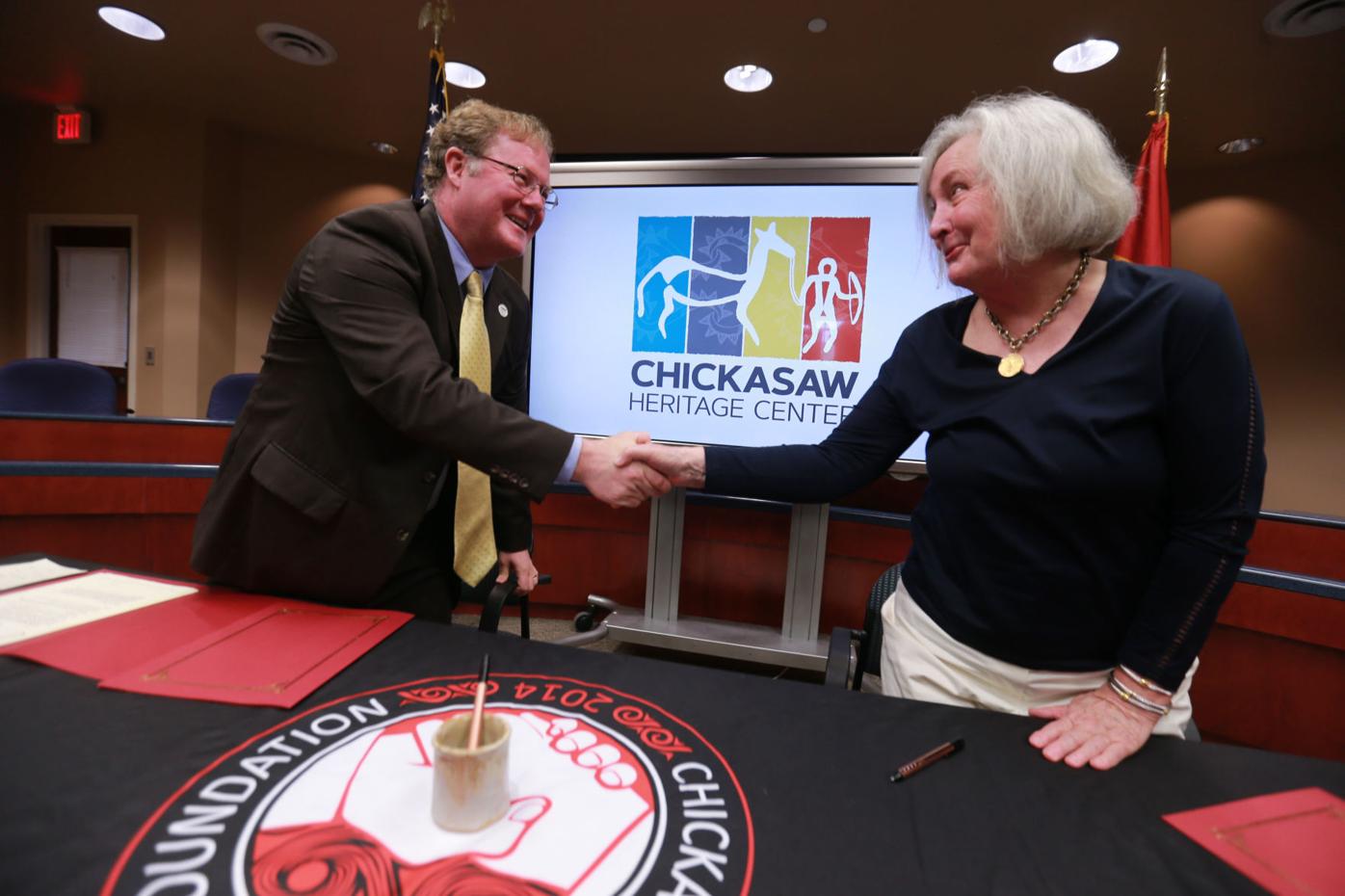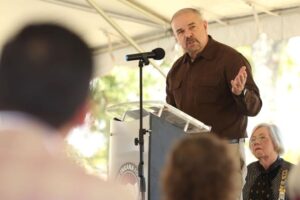No products in the cart.

Tupelo, Chickasaw Inkana Foundation advances plans to build historic heritage center (Taylor Vance – Daily Journal)
Tupelo Daily Journal
Taylor Vance
Leaders from the city of Tupelo, the Chickasaw Inkana Foundation, the Chickasaw Nation and state government are advancing plans to tell the history and culture of the Chickasaw Nation.
Outgoing Mayor Jason Shelton and Jaime Joyner, the chairwoman of the Chicksaw Inkana Foundation’s board, signed a memorandum of understanding on Tuesday outlining that the city will construct an access road to help build the Chickasaw Heritage Center.
The heritage center’s mission is to interpret and explain the story of the Chickasaw nation from the perspective of the Chickasaw themselves and provide a space for the general public to learn about an often overlooked part of Northeast Mississippi’s history.
As part of its agreement, the city in three phases will construct, improve and redesign portions of Gun Club Road and West Jackson Street so that construction workers will eventually access the foundation property, which is adjacent to the Natchez Trace Parkway. The city will bid the project to an outside company.
The MOU is more than just mere paperwork. The construction of the access road will eventually lead to a facility that houses an exhibit hall, a theater, a gift shop, a cafe, a reconstructed village area and other attractions.
“This is a great occasion for the city of Tupelo, Lee County and the state of Mississippi,” outgoing Mayor Jason Shelton said. “This will be a true regional draw, a national draw and probably even an international draw for people that travel through the Natchez Trace Parkway.”
The center is estimated to generate $6 million annually, create at least 25 permanent jobs and draw at least 100,000 visitors per year. The heritage center will be located adjacent to the Chickasaw Village Site near the Natchez Trace Parkway.
Brady Davis, the CEO of the Chickasaw Inkana Foundation, said that the story and rich history of the Chicksaw has often been told through the lens of non-native people but this center will be different.
“When I refer to the Chickasaw perspective, I want to reinforce that this facility will be unique in that it tells the Chickasaw story from their perspective,” Davis said.
The Chickasaw lived across millions of acres of land in northeast Mississippi, northwest Alabama, west Tennessee and southwest Kentucky. They were forcibly removed from their homeland, the heart of which is modern day Tupelo, by the U.S. government following the Indian Removal Act in the 1830s.
Chris Anoatubby, the lieutenant governor of the Chickasaw Nation, said at the event that it’s significant for the Chickasaw to finally return to their homeland and tell their story from their own perspective.
“We are confident that the CHC will not only educate and interpret our history, but will serve as an economic driver,” Anoatubby said.
The foundation is seeking $16 million in appropriations from the state government to complete the project. Thus far, the state has provided $6 million, according to Davis. The Chickasaw Nation will match the funds dollar-for-dollar that the state provides.
Construction on the center is tentatively scheduled to begin in the fall of 2022, and the center is tentatively scheduled to open in the early part of 2025. In the meantime, the foundation will aim to launch its website and start its capital campaign for the center’s construction.


